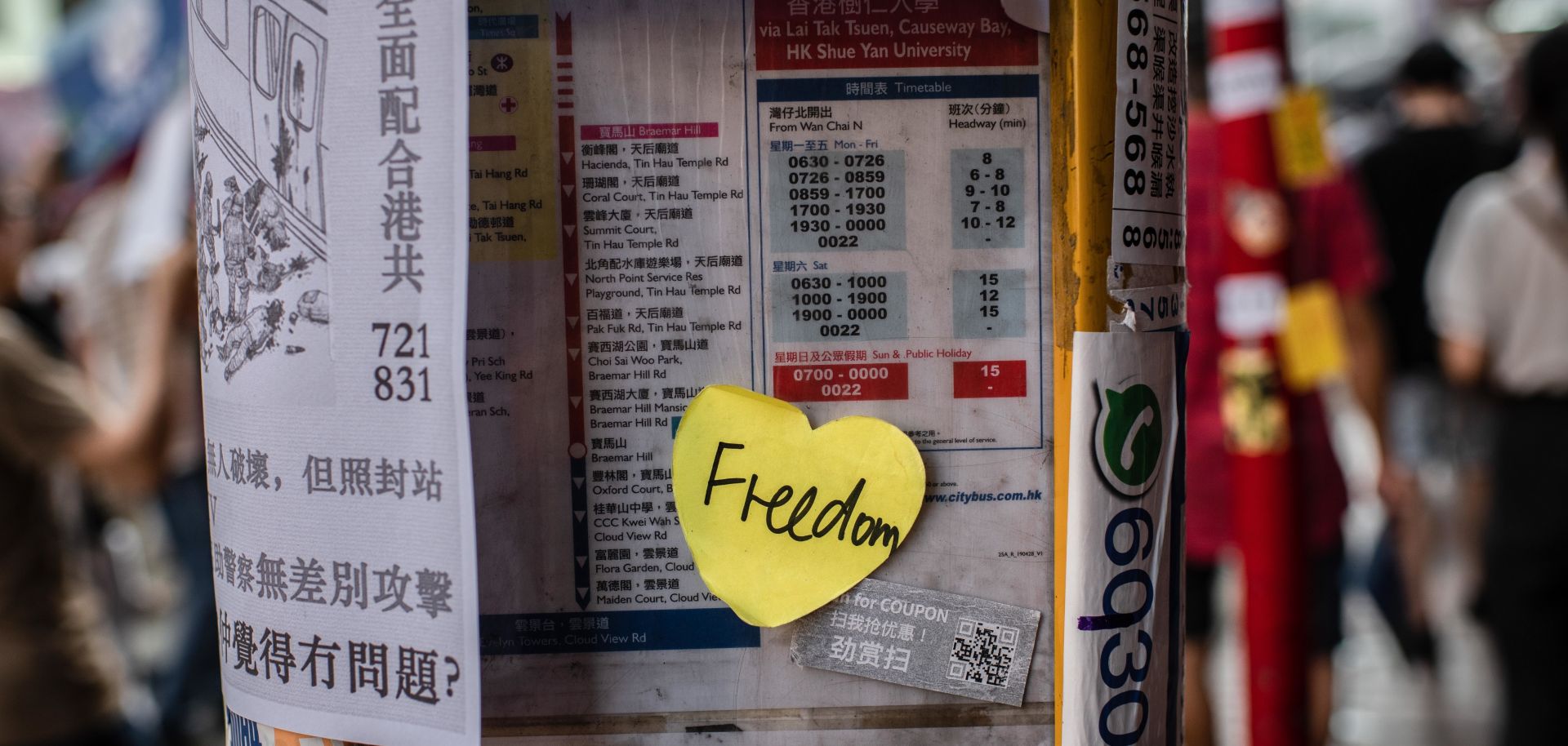GLOBAL PERSPECTIVES
Hong Kong and the Appeasement of China

Sep 18, 2019 | 18:02 GMT

A sticker at a bus stop during a pro-democracy march in Hong Kong on Sept. 15. Hong Kong's reunion with mainland China was generally popular after the 1997 handover from the United Kingdom, but attitudes have changed with China's increasing assertiveness.
(IVAN ABREU/SOPA Images/LightRocket via Getty Images)
Highlights
- The protests in Hong Kong reinforce a growing sentiment in the United States and elsewhere that China is turning into a threat to the international system.
- Compared with the history of the British Empire in Asia, China's extension of its power abroad has been mild. But the world is less harsh than it used to be, and China's actions can be seen as aggressive by contemporary standards.
- Looking back from 2047, when China will be free to change Hong Kong in whatever way it likes, historians might well see Western behavior of the past 30 years not as an adaptation to China's strength but as appeasement.
Subscribe Now
SubscribeAlready have an account?
